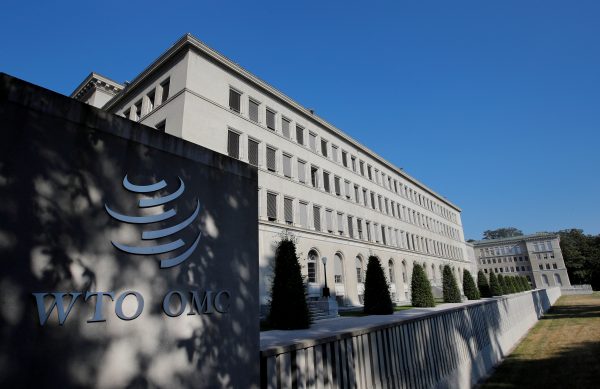To be certain, times are tough for the WTO. The role of the United States in blocking the appointment of judges to the WTO’s Appellate Body threatens the prized system for settling international trade disputes that makes the WTO so important to global business. As the users of this lynchpin system, businesses are acutely aware of its value. The business community is also cognisant that there are valid reasons for questioning the functioning of the WTO.
The organisation’s 64 member countries have sidestepped their duty to keep the organisation current, leading to paralysis in decision-making with an inability to embrace new topics such as digital trade (even as new impetus seems to have emerged from January’s snowy gathering in Davos). The WTO is blamed for contributing to increased global inequality, failing to address market distortions and allowing free-riding nations to get away with behaviour that is contrary to the spirit of the organisation.
While there is some truth in these critiques, the organisation has become the pinata for those looking to exercise their discontent with the effects of globalisation. The WTO’s shortcomings are widely acknowledged, but that should motivate its supporters all the more to do the hard work of modernising the system, not dispensing with it. As politics elsewhere have proven in recent years, the business community cannot afford to remain on the sidelines of this debate with the hope that all will be fine. It is in businesses’ interest to advocate for the reformed WTO they wish to see.
October 2018 saw the launch of a Global Dialogue on Trade meant to do just that. This unique platform hosted by the International Chamber of Commerce (ICC) drew more than 80 businesses and think tanks from around the world, calling on participants to suggest major areas that require the immediate attention of global leaders in strengthening the WTO and making it fit-for-purpose in the 21st century.
Current trade tensions — the price of which will be mostly paid by the least protected in society through choking economies and sub-par growth patterns — cannot be sustainably solved without a well-functioning, rules-based multilateral trading system. The ongoing, dynamic debates facilitated by the Global Dialogue on Trade address the distorting effect of state-owned enterprises, the increasing role of the digital economy in global trade and the effectiveness of an unconventional plurilateral system to advance essential topics among like-minded groups.
The rules governing the common ownership of the WTO need to be revisited to make sure that the organisation remains an essential partner for cross-border trade and economic growth. The recommendations that hail from the ongoing ICC debates are channelled into the G20 and G7 processes whenever they can. The Japanese leadership of the G20 confronts the huge challenge of WTO reform this year and can count on the ICC’s support in pursuing this important agenda.
John WH Denton is the Secretary General of the International Chamber of Commerce.

